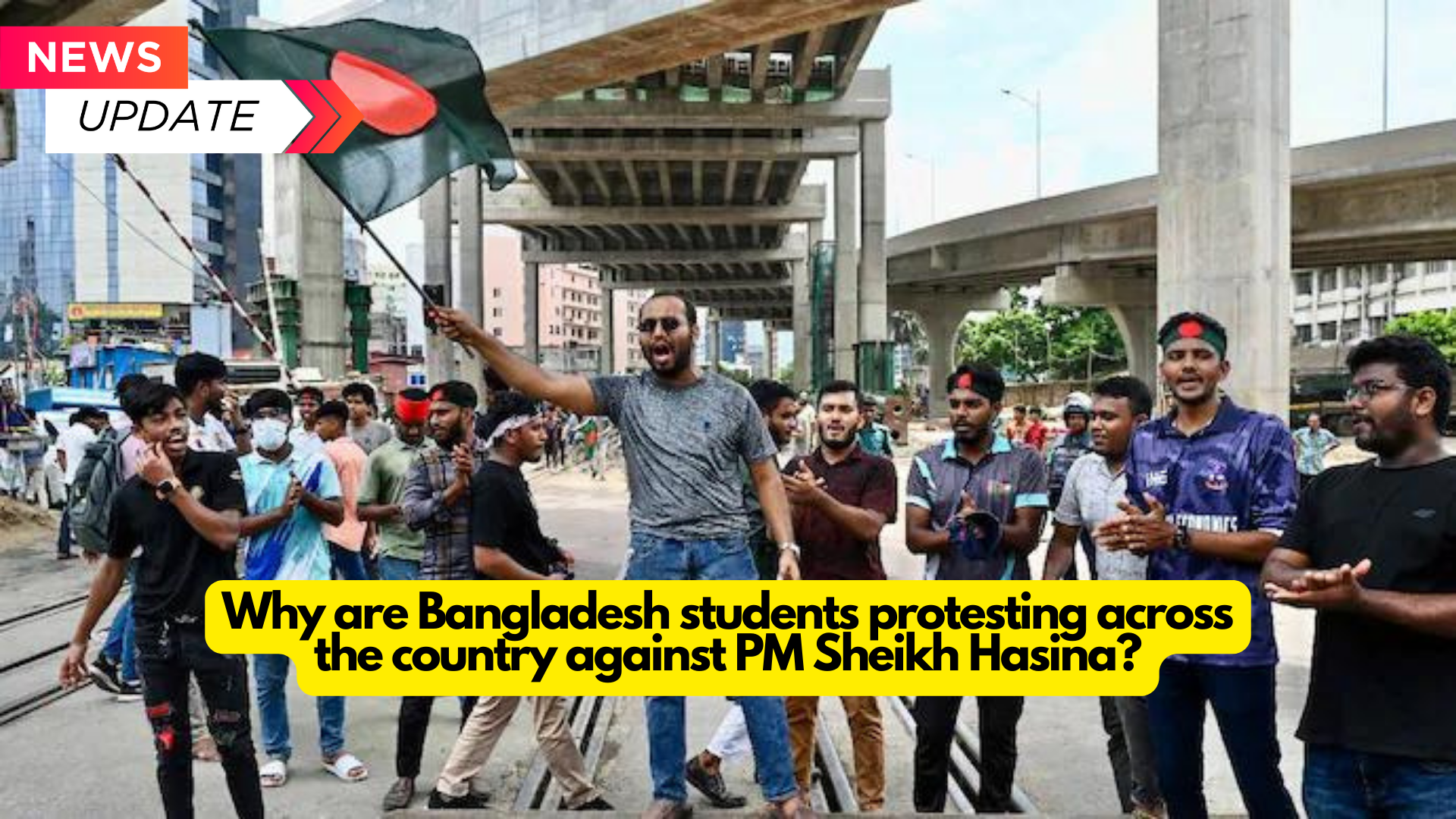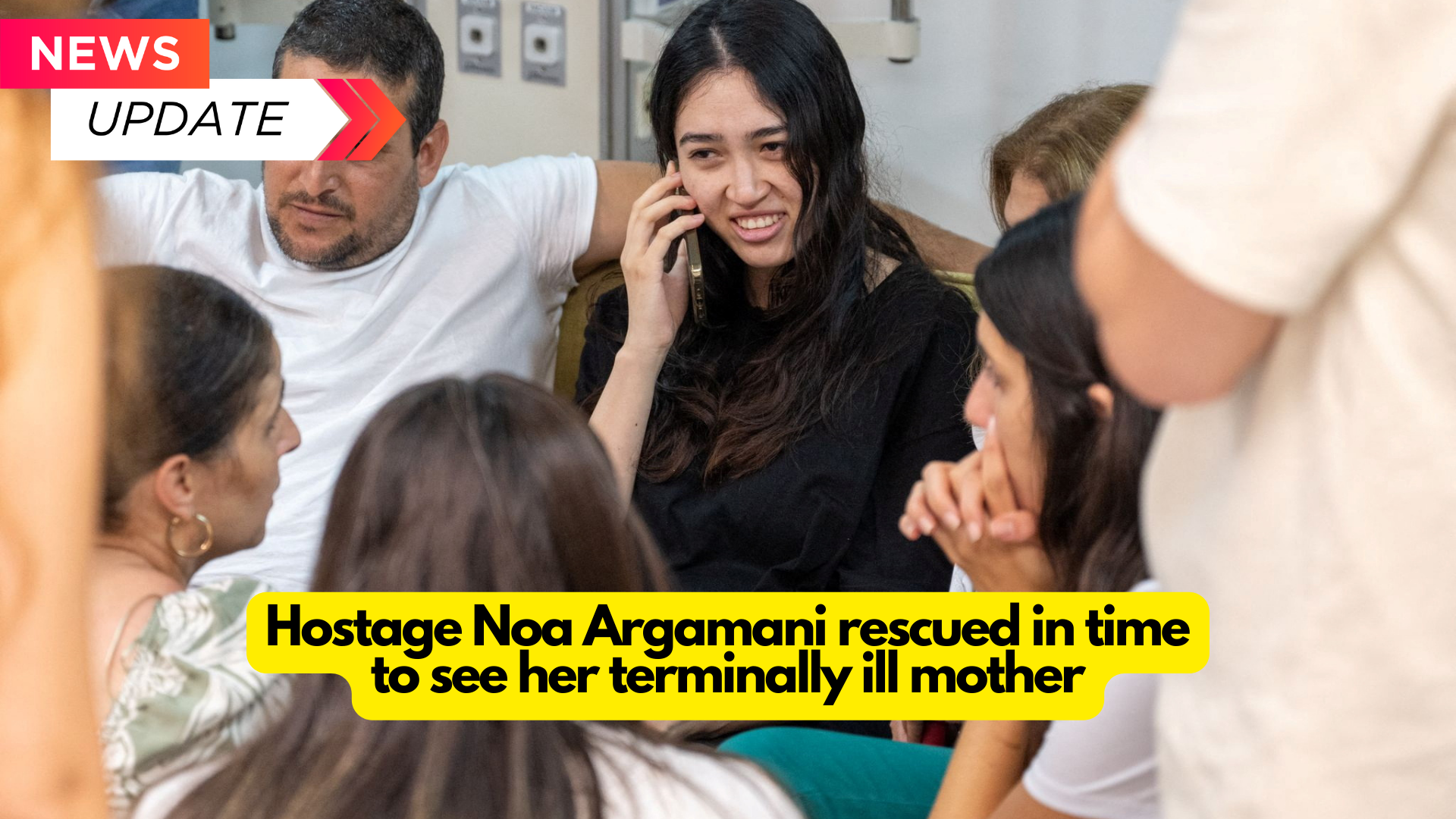Violence occurred in Bangladesh during student protests against the government’s quota system for employment distribution, killing at least six people and injuring hundreds more. The demonstrations, which began last month, became more intense as Prime Minister Sheikh Hasina refused to satisfy protester demands.
Table of Contents
ToggleWhat caused the protests in Bangladesh?
The demonstrations erupted after the High Court reintroduced a quota system for government posts. This ruling overruled Hasina’s government’s 2018 decision to eliminate the scheme, which allocated 30% of employment to relatives of liberation fighters from the 1971 independence struggle. The Supreme Court later halted the High Court’s judgment and set a hearing for August 7.
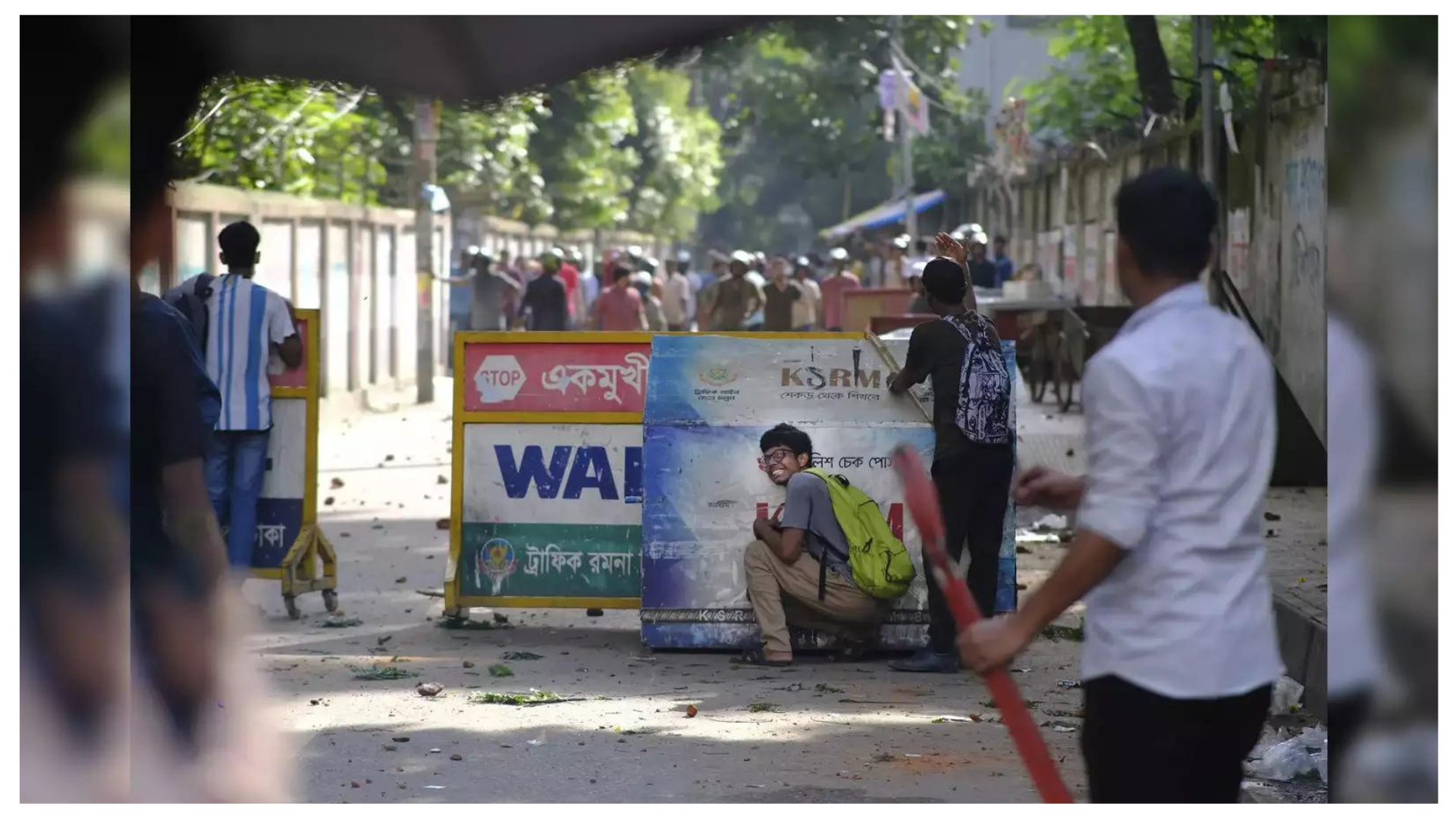
Despite this, students increased their demonstrations after Hasina referred to them as “razakar,” a pejorative used to describe people who sided with Pakistan during the 1971 war.
What is Bangladesh’s quota system?
Bangladesh’s quota system, which was established in 1972, has seen several changes throughout time. By 2018, 56% of government positions were reserved through different quotas.
The majority of the funds went to the families of independence fighters, but other groups, including women, undeveloped areas, indigenous populations, and the crippled, received assistance as well. The students demand the elimination of all categories except those that aid indigenous populations and the disabled.
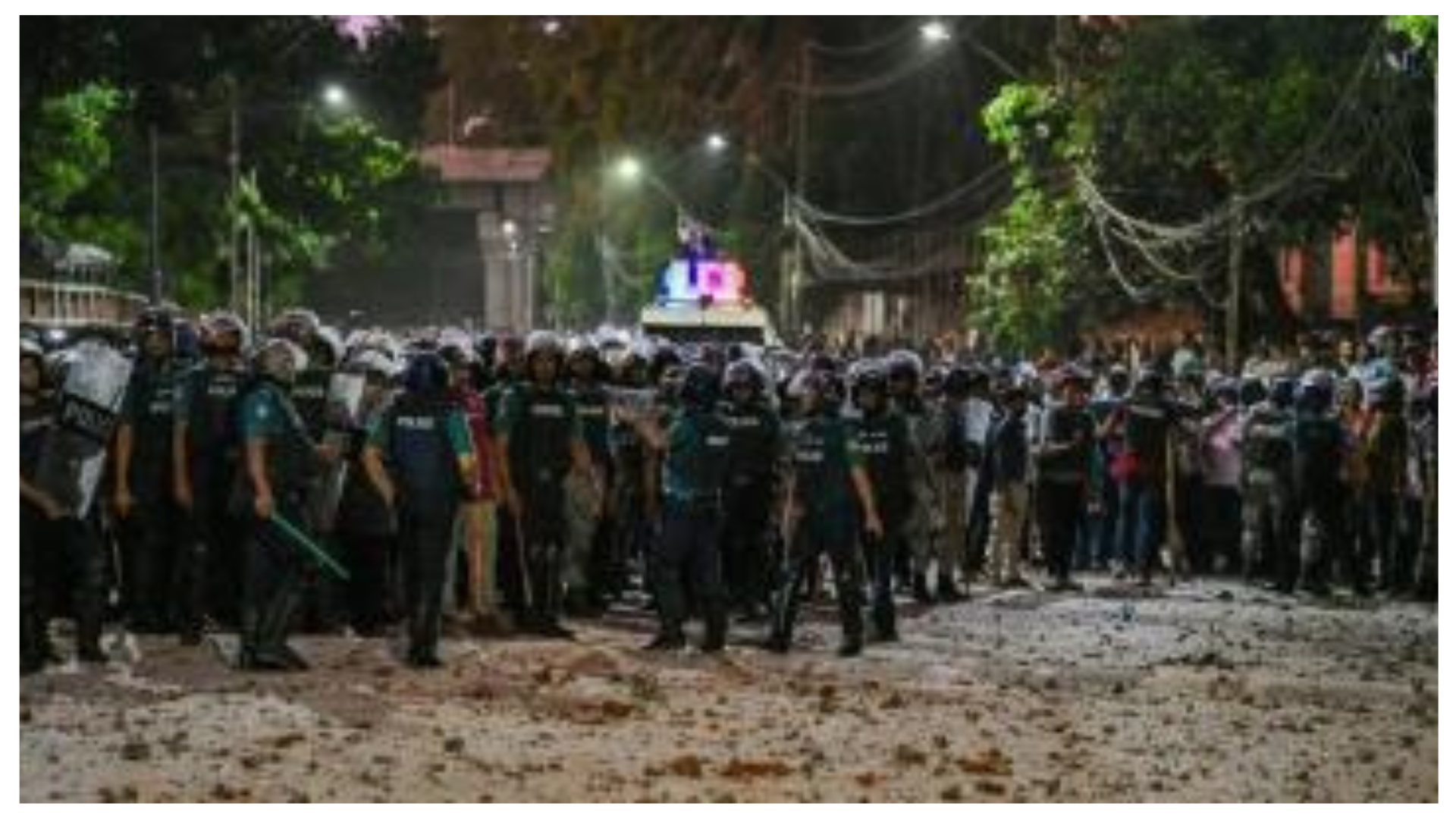
Escalation to Violence
This week, rallies became violent when anti-quota protestors clashed with members of Hasina’s Awami League’s student wing. Police used rubber bullets, sound grenades, and tear gas to remove demonstrators who had blocked railway tracks and key roadways.
Student Concerns
Protesters claim that the 30% quota for independence fighters’ families favors Awami League members disproportionately. This dissatisfaction is also driven by stagnating employment growth in the private sector, which makes public-sector positions more desirable due to their security and perks.
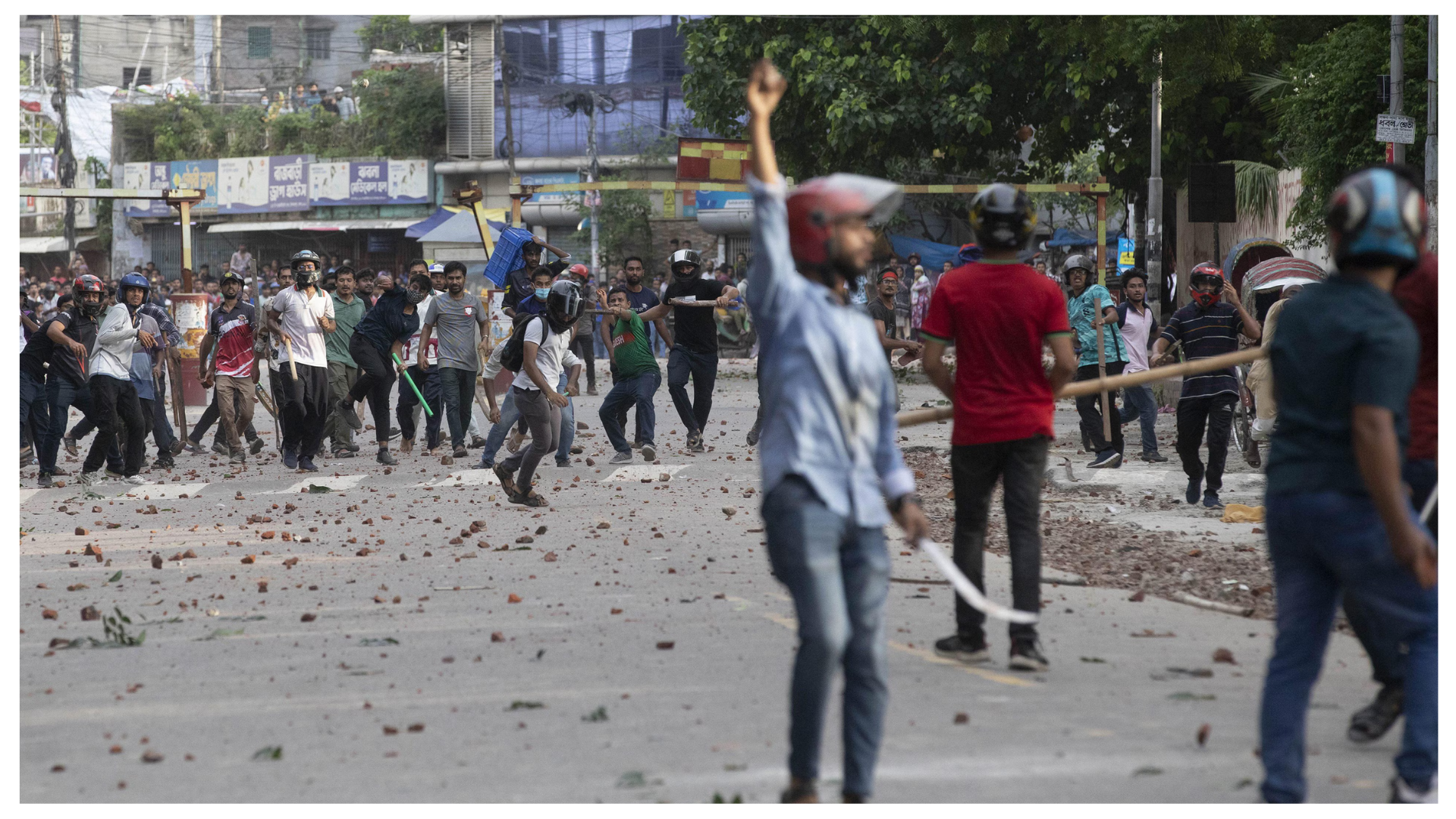
The quotas decrease the quantity of merit-based government positions, which irritates students experiencing high unemployment rates. Out of a population of 170 million, over 32 million young people in Bangladesh are now unemployed or not in school.
Stagnation, around ten percent inflation, and decreasing dollar reserves are among the economic concerns.
Hasina’s Response
Prime Minister Hasina, facing her first major test since winning a fourth term in January, has denounced the violence and urged calm until the Supreme Court rules. “Patience until the Supreme Court delivers its verdict” has been her message, encouraging calm amidst the chaos.
